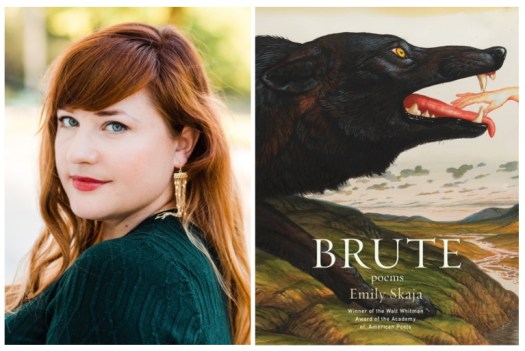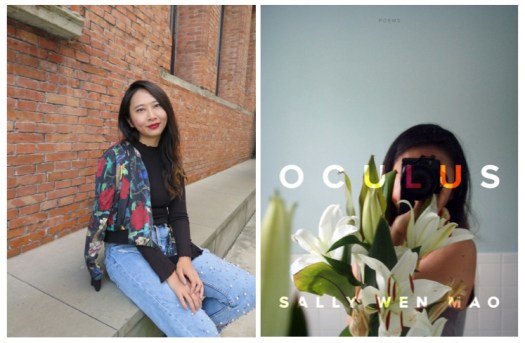As I mentioned top ten fiction books list, I read 55 books in 2019 — of these 26 were collections of poetry. This large uptick in poetry reading is largely impacted by the spotlight and podcast interviews that I’ve been putting out over the past year.
I’ve read so many amazing poetry books last year and I hate to leave any one out — but sometimes a collection just resonate with where your at in any given moment. These are some of the poetry books and chapbooks that spoke to me this year (in no particular order).

Mary Shelley Makes a Monster by Octavia Cade (Aqueduct Press)
As the title suggests, Mary Shelley does indeed make a monster, crafting it out of the remnants of her own heartbreak and sorrow. Abandoned and alone after her death, the monster searches for someone to fill her place. Its journey carries it across continents and time, visiting other female authors throughout the decades — Katherine Mansfield, Virginia Woolf, Sylvia Plath, Octavia Butler, and others. These poems are a beautifully moving examination of the eccentricities of authors and how monsters reflect ourselves.

Locus by Jason Bayani (Omnidawn)
Drawing on his heritage and cultural experience, Bayani delves into the fragmented identities of Pilipinx Americans. Blending memoir and lyricism and inspired by hip-hop and DJ culture, these poems do powerful work in recovering the voices of silenced communities, reflecting on the importance of family and history in understanding oneself. (Podcast interview.)

Brute by Emily Skaja (Graywolf Press)
Winner of the Walt Whitman Award, Emily Skaja’s Brute is a stunning collection of poetry that navigates the dark corridors found at the end of an abusive relationship. Her poetry considers the intersections of both love and violence, evoking a range of emotional experiences — ranging from sorrow and loss to rage, guilt, hope, self discovery, and reinvention. One of the many things I love about this collection is the way the poems reflect the present moment — ripe of cell phones, social media, and technologies that shift the way humans interact with each other — while maintaining a mythic quality, with the speaker feeling like a character struggling to survive in a surreal fairy tale world just waiting to eat her up. (Podcast interview.)

Never Leave the Foot of an Animal Unskinned by Sara Ryan (Porkbelly Press)
This chapbook of poems about taxidermy dives into the liminal space between the living and dead, exploring the nature of body down to the bone. Footnotes intricately offer additional layers to the poetry, providing an expanded philosophical look at the art of preservation. (Spotlight interview.)

Oculus by Sally Wen Mao (Graywolf Press)
Pop culture blends with technology to examine how we reveal ourselves, how we see each other, and the power structures involved in who gets to tell the story. One series of poems is written from the perspective of Anna May Wong, the first Chinese American movie star, who time travels her way through the history and future of cinema. Through the eyes of Wong, Mao considers the portrayals of Asian characters in movies, from Bruce Lee to Breakfast at Tiffany’s and Sixteen Candles. (Podcast interview.)

As One Fire Consumes Another by John Sibley Williams (Orison Books)
The poems in this collection present a familiar world full of burnings carried out on both the grand and intimate scale. Newspaper-like columns of prose poetry in his work provide a social critique of violence in American culture, while working within the boundaries of self, family, and the natural world. The book permeates an apocalyptic tension, but what makes it so great is the way in which his poems envision the kind of fires that not only provide destruction but also illuminate a spark of hope. (Podcast interview.)

Death by Sex Machine by Franny Choi (Sibling Rivalry Press)
In this stunning chapbook, Choi examines her own experience as a queer Asian American femme through the lens of robots, androids, and AI. There’s a beautiful combination of hard science and tender intimacy expressed in her lyrical work as she delves into what it means to have a body.

The Devil’s Dreamland: Poetry Inspired by H.H. Holmes by Sara Tantlinger (Rooster Republic)
Horror poetry can be profoundly chilling. Tantlinger’s collection blends fact and supposition to relate the life and times of the man thought to be America’s first serial killer. The poems are individually visceral, while coming together as a whole to provide a fascinating narrative arc. (Podcast interview.)

all this can be yours by Isobel O’Hare (University of Hell Press)
O’Hare uses erasure poetry (the act of erasing or crossing out another text to discover a poem) as a dynamic tool to reexamine a multitude of celebrity sexual assault apologies that came out during the #MeToo movement. These poems are fierce explorations of how the men (and some women) making these apologies try to evade their own culpability. (Podcast interview.)

Citizen: An American Lyric by Claudia Rankine (Graywolf Press)
This justifiably lauded collection of poetry and essays offers an unflinching look at the everyday realities of racism in America, with the second person narration drawing the reader directly into the experience. The prose poetry and essay styles combined with art make for a powerful and necessary read.
What were some of your favorite poems, poets, or poetry books from last year?
Subscribe to My Newsletter | Twitter | InstagramÂ













